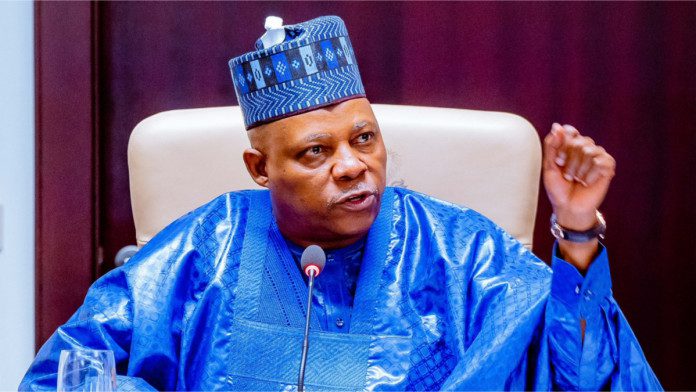News in Brief:
– Nigeria’s Vice President announced a multi-pronged attack on malnutrition, including creating nutrition departments in key ministries, securing increased funding, and promoting collaboration with stakeholders.
– This strategy stresses improved coordination, funding, and public awareness to address this critical public health issue.
Nigeria’s Vice President, Kashim Shettima, has unveiled a multi-pronged approach to tackle malnutrition in the country. The vice president disclosed that government is prioritising the creation of dedicated government departments and increased funding for nutrition programmes.
Shettima made the announcement during a meeting with the Nutrition Core Working Committee, a body tasked with addressing challenges and finding solutions for scaling up nutrition efforts in Nigeria.
Determined to accelerate the implementation of nutrition and related interventions in Nigeria, the Vice President, Sen. @KashimSM has said the Federal Government will prioritize the creation of nutrition departments in designated federal ministries and improved funding of… pic.twitter.com/fkACmNLzva
— Senator Kashim Shettima (@officialSKSM) March 26, 2024
The proposed strategy includes establishing nutrition departments within key federal ministries. These departments would be housed in the Ministries of Water Resources and Sanitation, Science and Technology, Budget and National Planning, Humanitarian Affairs, Disaster Management and Social Development, Information and Culture, Education, and Women’s Affairs.
Additionally, Mr. Shetimma remarked that government has to ‘come up with ingenious ways of improving advocacy, hence every stakeholder must be involved, including the private sector.’ This he observed, is important in driving broader participation in the process.
Broadening the approach: funding, advocacy, and monitoring
The Vice President acknowledged the critical role of funding in addressing nutrition issues and urged the committee to set ambitious funding targets. He also hinted at exploring innovative financing mechanisms that could involve private sector investment.
Also, Shettima further harped on the need for stronger advocacy campaigns to raise public awareness about the importance of nutrition. He stressed the importance of engaging all stakeholders, including the private sector, to champion these initiatives.
Meantime, the Vice President’s commitment extends to monitoring progress. He announced plans to establish a dedicated dashboard within his office to track the activities of stakeholders involved in nutrition interventions.
Collaboration with state governments is also seen as crucial. Shettima encouraged states to actively participate in these efforts and leverage the UNICEF matching fund program, which provides additional resources for scaling up nutrition activities.
Overall, the comprehensive strategy outlined by Vice President Shettima signifies a significant shift in Nigeria’s approach to tackling malnutrition. By establishing dedicated departments, securing increased funding, and fostering collaboration across various sectors, the government aims to make substantial progress in addressing this critical public health issue.



